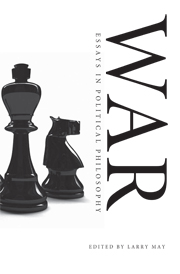4 - Aggression and Punishment
Published online by Cambridge University Press: 05 June 2012
Summary
Two Paradigms of Just War
The themes of this essay are, as the title indicates, aggression and punishment. Contemporary ways of thinking about war might suggest that a more appropriate pair of topics would have been aggression and defense, since a war of defense against aggression is currently thought to be the paradigm of a just war, or indeed the only kind of just war. Yet when Michael Walzer set out the framework for his now classic account of the just war, which articulated what has come to be the consensus view, he advanced six propositions that he claimed constitute “our baseline, our model, the fundamental structure for the moral comprehension of war,” and in these propositions the notions of defense and punishment are tightly yoked. The last four of these six propositions, which together constitute what Walzer calls the “legalist paradigm,” are as follows.
Any use of force or imminent threat of force by one state against the political sovereignty or territorial integrity of another constitutes aggression and is a criminal act.
Aggression justifies two kinds of violent response: a war of self-defense by the victim and a war of law enforcement by the victim and any other member of international society.
Nothing but aggression can justify war.
Once the aggressor state has been militarily repulsed, it can also be punished.
- Type
- Chapter
- Information
- WarEssays in Political Philosophy, pp. 67 - 84Publisher: Cambridge University PressPrint publication year: 2008
- 8
- Cited by



